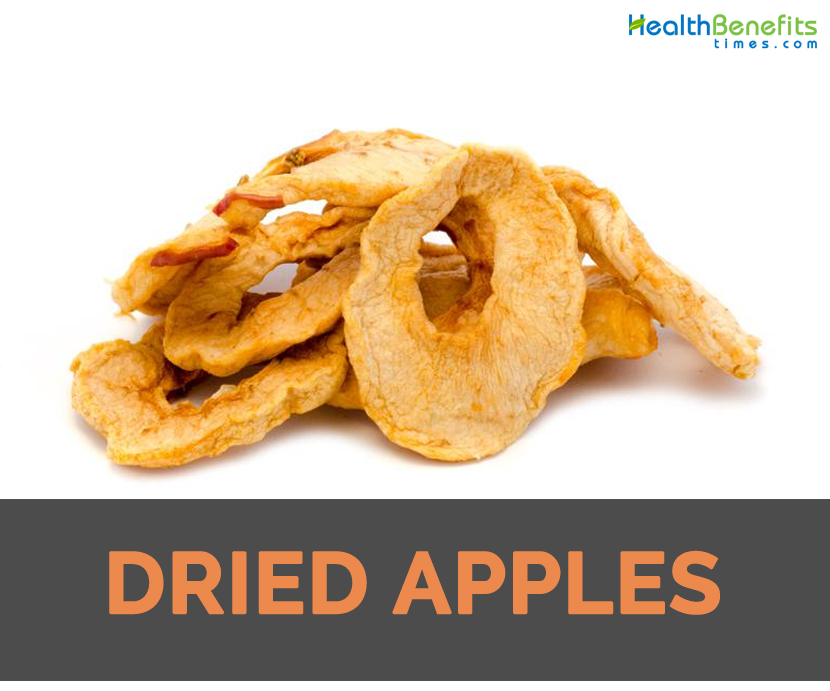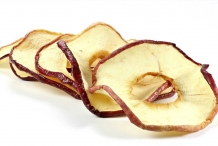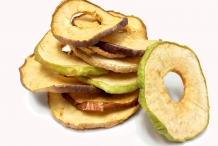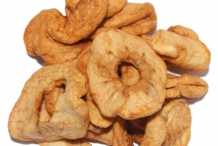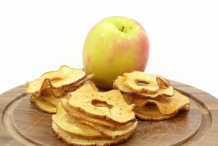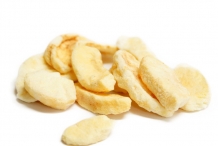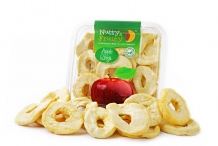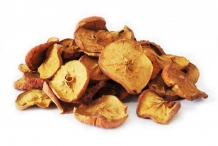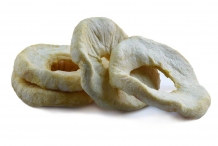Dried apples are an excellent source of both types of fiber i.e. insoluble and soluble fiber. Soluble fiber assists to control level of blood sugar and also reduces bad cholesterol levels. Insoluble fiber enhances digestive health. Dried apples are also loaded with antioxidants that protect cells from damage made by free radicals. It possess immune boosting vitamins as well as minerals such as iron and calcium.
History
Possibly apples have been found two to ten million years ago. Sun-drying fruits are the popular method of preserving food since colonial times and have been in practice since Stone Age. In 1620, apples was brought by Pilgrims to North America and used for making pie, cider, vinegar and butter or also consumed in dried form.
How to Dry Apples?
Ingredients:
- Apples
- Solution (Mix of lemon juice and pineapple juice)
Instructions:
- Cut apples into thin slices.
- Soak in solution.
- Then put single layer on drying rack.
- Dry till the apples become leathery, very dry and crispy.
How to Eat
- Dried apples are consumed raw.
- It is used as an ingredient in muesli, mixed fruit and trail mixes.
- Add dried apples to cookies, muffins, quick breads, cakes, desserts and puddings.
- Saute it with vegetables.
References:
https://jenniferskitchen.com/2011/12/how-to-dry-apples.html
https://nuts.com/driedfruit/apples/slices.html
https://traditionalcookingschool.com/food-preparation/recipes/how-to-dehydrate-apples/
http://www.specialtyproduce.com/produce/Dried_Apple_Rings_5624.php
https://nuts.com/driedfruit/apples/organic.html
Comments
| Dried Apples Quick Facts | |
|---|---|
| Name: | Dried Apples |
| Colors | Tan to light brown |
| Calories | 209 Kcal./cup |
| Major nutrients | Carbohydrate (43.59%) Total dietary Fiber (19.74%) Copper (18.22%) Iron (15.00%) Vitamin B2 (10.54%) |
| Name | Dried Apples |
|---|---|
| Color | Tan to light brown |
| Major Nutritions | Carbohydrate 56.67 g (43.59%) Total dietary Fiber 7.5 g (19.74%) Copper, Cu 0.164 mg (18.22%) Iron, Fe 1.2 mg (15.00%) Vitamin B2 (Riboflavin) 0.137 mg (10.54%) Potassium, K 387 mg (8.23%) Vitamin B6 (Pyridoxine) 0.107 mg (8.23%) Sodium, Na 75 mg (5.00%) Vitamin B3 (Niacin) 0.797 mg (4.98%) Phosphorus, P 33 mg (4.71%) |
| Calories in 1 cup (86 g) | 209 Kcal. |


